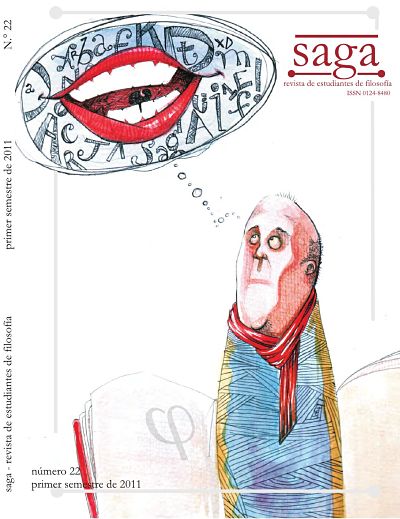Auschwitz como telos de la agresión y la guerra
Auschwitz as Telos of War and Agression
Palabras clave:
Freud, Lacan, Auschwitz, Deshumanización, Imaginario, Musulmán, Yo narciso (es)Freud, Lacan, Auschwitz, Dehumanization, Imaginary, Muslim, Narcissistic ego (en)
Descargas
Auschwitz is often seen as a historical singularity, an event that cannot be explained using traditional categories that account for human aggression. This article seeks to explain, following Freud and Lacan, that what happened there is a sample of the de-humanizing activity that is inherent in all wars, in this case taken to a maximum degree in the concentration camp. Aggression seeks de-humanization more than it seeks death; this is what the image of the Muslim in concentration camps shows. Muslim was the name of jewish concentration camp prisoners that had lost their humanity because of the mistreatment they received, that is, because of the power exercised over their narcissistic egos. We find that the narcissistic ego explains the necessity we have of imposing our humanity over others, to the point of creating imaginary signifiers that de-humanize those that do not share our humanity; in war, this de-humanization becomes real; the culmination of this de-humanization is the non–human, who has entirely lost his ego.
Referencias
Agamben, G. Lo que queda de Aushwitz. Valencia: Pre-textos, 2002.
Castoriadis, C. “Las raíces psíquicas y sociales del odio”. Guerra y muerte. Bogotá: Fundación para la investigación y la cultura, 2005.
Castro, M.C. y Díaz, C. Guerrilla, reincisión y lazo social. Bogotá: Almudena editores, 1977.
Díaz, C. Nombres del Otro que marca el cuerpo. Bogotá: Universidad Nacional de Colombia, 2000.
Freud, S. “El malestar en la cultura”. El malestar en la cultura y otros ensayos. Madrid: Alianza, 1973.
Lacan, J. “La agresividad en psicoanálisis”. Escritos I. México: Siglo XXI, 1971.
Santos, L. Real, simbólico e imaginario. Material didáctico. Bogotá: Universidad Nacional de Colombia, 2004.
Sofsky, W. The Order of Terror: The Concentration Camp. New Jersey: Princeton University Press, 1999.
Cómo citar
APA
ACM
ACS
ABNT
Chicago
Harvard
IEEE
MLA
Turabian
Vancouver
Descargar cita
Visitas a la página del resumen del artículo
Descargas
Licencia
Derechos de autor 2022 Saga – Revista de Estudiantes de Filosofía

Esta obra está bajo una licencia internacional Creative Commons Atribución-NoComercial-SinDerivadas 4.0.
Todos los documentos alojados en esta web están protegidos por la licencia CC attribution non commercial no derivatives 4.0 intenational

















